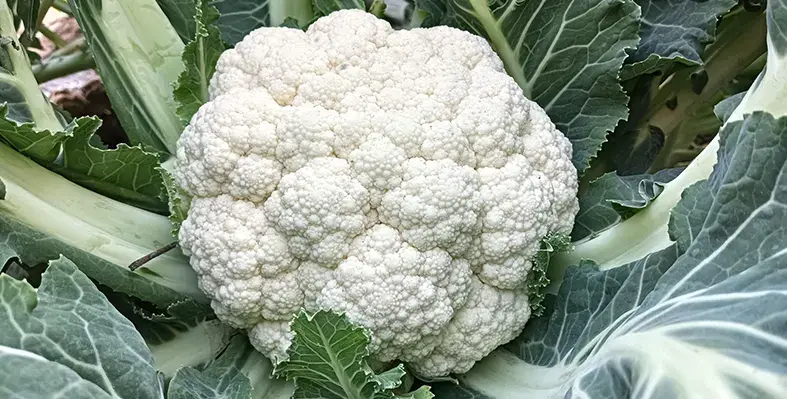Nuclear science has paved the way for a breakthrough in Mauritius' agricultural sector with the development of a new cauliflower variety that is resistant to the destructive Black Rot disease
This advancement is the result of a decade-long collaboration between the International Atomic Energy Agency (IAEA), the Food and Agriculture Organization (FAO), and Mauritian agricultural experts. The newly developed variety, named Local Cream, promises to significantly reduce pesticide use, lower production costs, and contribute to the island's food security.
Black Rot has been a persistent issue for Mauritian cauliflower farmers, causing severe damage to crops and forcing many to rely on costly pesticides. The disease often renders the cauliflower unfit for consumption or export. However, Local Cream has been bred using radiation-induced mutation techniques that have enhanced its tolerance to Black Rot, a bacterial disease known for its devastating effects on crops. The variety’s compact, cream-coloured head makes it ideal for local markets and export, while maintaining the nutritional qualities of the traditional local variety.
Over the years, IAEA’s technical cooperation programme has played a crucial role in supporting Mauritian scientists at the Food and Agriculture Research and Extension Institute (FAREI). The collaboration involved hands-on training, expert guidance, and access to advanced nuclear technologies, culminating in the successful development of Local Cream by 2025. The variety was officially launched at a high-profile ceremony attended by Arvin Kumar Boolell, Mauritius’ Minister of Agro-industry, Food Security, Blue Economy, and Fisheries.
The Local Cream cauliflower variety is particularly significant for Mauritius, where cauliflower is a staple crop that plays a key role in food security and the export economy. By making this disease-resistant variety available to local farmers, the initiative is expected to boost domestic production, improve the quality of the produce, and help smallholder farmers reduce dependency on expensive, imported seeds and pesticides.
The development process involved exposing local cauliflower varieties to gamma rays, a technique used to induce mutations that enhance traits like disease resistance and yield. After years of rigorous research, the best-performing lines were selected for field trials, ensuring that the new variety met both disease resistance and high production standards. Today, Local Cream is ready for harvest in just 60 to 65 days, providing farmers with a faster, more reliable crop cycle.
Feedback from farmers has been overwhelmingly positive, with early trials showing high disease tolerance and impressive product quality. Gashaw Wolde, IAEA’s Director for Africa, emphasised the benefits of this variety, which allows farmers to save on pesticide costs while offering consumers safer, healthier produce. Moreover, as an open-pollinated variety, Local Cream empowers farmers to save and exchange seeds, further promoting sustainability and self-reliance in the agricultural sector.
This successful collaboration marks a milestone in the development of resilient, sustainable crops for Mauritius, and IAEA’s technical cooperation programme will continue to support future efforts in enhancing the island's agricultural resilience.





